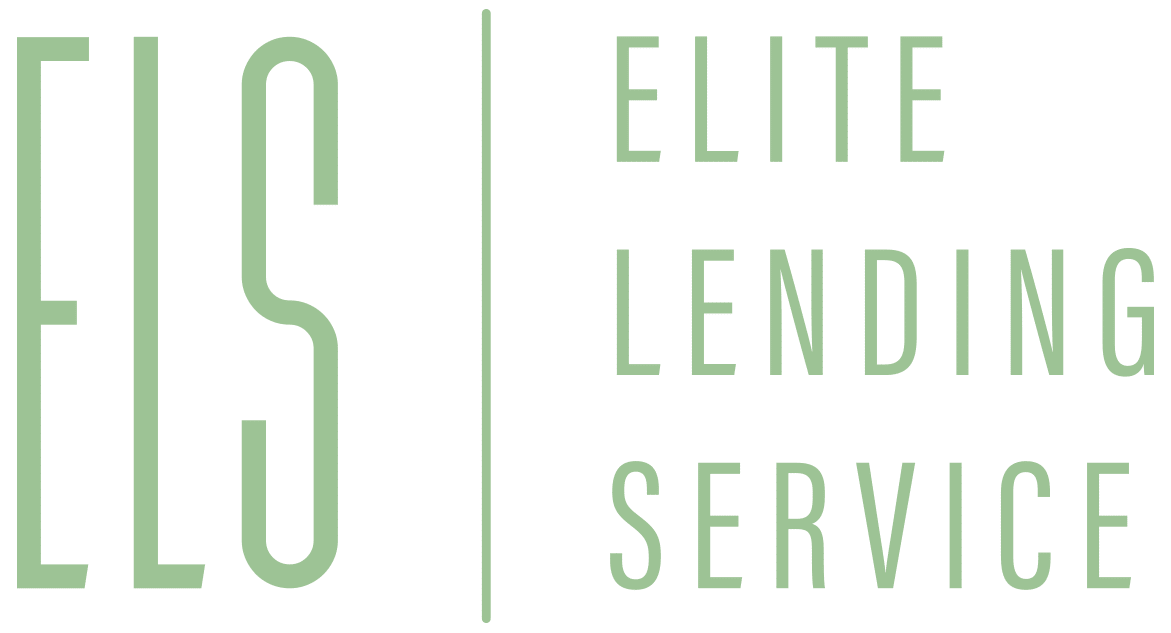Table of Contents
Ever thought about What are The Costs of Refinancing a Mortgage Loan? Many homeowners don’t realize the many expenses involved. These costs can vary a lot, usually between 2% to 6% of the loan amount. Knowing these fees is key to saving money and avoiding surprises.
Freddie Mac says refinancing costs about $5,000 on average. This includes fees for applying, appraisals, and closing. For example, applying for a loan costs around $550. Appraisal fees for a house can be $300 to $500. Understanding these costs helps homeowners make smart choices to lower payments or get cash out.
Knowing the cost of refinancing is essential for anyone thinking about it. The savings can be big, but only if the costs fit your financial plans.
Key Takeaways
- Refinancing costs typically range from 2% to 6% of the loan amount.
- Freddie Mac estimates the average cost of refinancing around $5,000.
- Application fees average $550, while appraisal fees can hit $500.
- Closing costs are a key component of mortgage refinance costs.
- Understanding the true costs can prevent unexpected financial strain.
Understanding Mortgage Refinancing Costs
Mortgage refinancing means getting a new loan to replace your current one. It can help lower your interest rates, change your loan terms, or let you cash out some equity. Knowing the costs of refinancing is key for homeowners who want to make smart choices.
Definition of Mortgage Refinancing
Refinancing lets homeowners get a new mortgage to pay off their old one. This can lead to lower monthly payments and save money in the long run. But, it’s important to know about the costs involved, as they can affect your savings.
Importance of Knowing Costs
Understanding the costs of refinancing helps homeowners see the full picture. Refinancing costs can be 2% to 6% of the new loan amount. For instance, a $150,000 refinance might have closing costs between $3,000 and $9,000. Knowing these costs helps decide if refinancing will save you money in the end.
Types of Costs Involved in Refinancing
Homeowners need to know about the costs of refinancing a mortgage. These costs can affect the total refinancing charges. Here, we explain the main types of costs you’ll face.
Application Fees
Application fees are the first costs you’ll pay. They usually cost around $550. These fees help the lender process your application and check your credit.
Appraisal Fees
Appraisal fees are another big cost. They can be between $300 to $500 for a single-family home. For bigger or more expensive homes, the cost can go up. An appraiser checks the home’s value to make sure it’s worth the new mortgage.
Closing Costs
Closing costs are a big part of refinancing. They can be 2% to 6% of the loan amount. These include title services, legal fees, and other administrative costs. Legal fees are usually $800 to $1,500, and title insurance can be $200 to $500, based on the home’s value. Knowing these costs helps homeowners plan and understand the financial impact.

Breakdown of Closing Costs
When you think about refinancing your mortgage, knowing the closing costs is key. These costs can add up and affect your refinancing budget. They usually range from 2% to 6% of the loan amount. This can be a big amount, depending on how much you owe on your mortgage.
Title Insurance
Title insurance protects you and your lender from any ownership issues. It costs between $700 and $900, based on your property’s value. Adding title insurance to your refinancing plans helps ensure all ownership problems are fixed. This gives you peace of mind for any future deals.
Recording Fees
Recording fees vary by where you live and are usually between $25 to $250. These fees pay for the official recording of your new mortgage with local authorities. It’s important to include these fees in your refinancing plans. They are a common part of most refinancing processes.
Attorney Fees
It might be wise to hire an attorney for the closing process. Attorney fees can be $500 to $1,000, depending on how complex the deal is. These costs are part of the overall refinancing price. They can affect your budget and how much you save by refinancing.
Interest Rates and Their Impact on Costs
Interest rates are key in figuring out the costs of refinancing a mortgage. Homeowners often refinance when rates drop. They aim for lower monthly payments and total mortgage costs. The choice between fixed-rate and adjustable-rate mortgages affects long-term finances.
Fixed vs. Adjustable-Rate Mortgages
Fixed-rate mortgages keep the interest rate the same for the loan’s life. This helps homeowners plan their monthly payments better. On the other hand, adjustable-rate mortgages start with lower rates but can change over time. This might lead to higher payments later on.
It’s important to know how these mortgages work. This knowledge helps in keeping refinancing fees down and staying on track with financial goals. For more information, check out fixed-rate versus adjustable-rate mortgages.
Rate Lock Fees
Rate lock fees are common when refinancing. They lock in a certain interest rate for a set time before closing. This protects against rate increases.
Even though these fees add to the costs, they help keep payments stable. Planning well is key to managing these fees and making refinancing work for you.
Understanding Points and Their Costs
When you think about refinancing your mortgage, it’s key to know about points and their costs. Points are fees you pay upfront to get a lower interest rate. This choice can affect how much you’ll pay for refinancing.
Origination Points
Origination points are fees from lenders for handling your loan application. They usually cost about 1% of the loan’s amount. For example, refinancing a $200,000 loan might cost $2,000 in origination points. This fee helps cover the lender’s work costs.
Discount Points
Discount points work the same way, costing 1% of the loan amount. Each point can lower your interest rate by a bit, like 0.125% to 0.25%. Buying discount points can save you money in the long run, if you stay in your home long enough. For instance, two points on a $200,000 loan could save you about $58.54 a month. Over time, you could save over $21,000. Thinking about these savings can help decide if the upfront costs are worth it.

Additional Costs to Consider
When you think about refinancing your mortgage, there are extra costs to keep in mind. These costs can affect your financial plans. Knowing about them helps you make smart choices for your future.
Home Inspection Fees
Home inspection fees can change a lot. They depend on the house’s age, size, and the local market. These fees usually fall between $300 and $500.
After the inspection, you might find things that need fixing. This could add to your refinancing costs. It’s wise to include these fees in your budget.
Prepayment Penalties
Prepayment penalties are another thing to watch out for. Some lenders charge you if you pay off your mortgage early. This is something to think about if you plan to refinance soon.
Understanding these penalties is key. It helps you plan your refinancing better. Always read your loan agreement carefully.
The Role of Your Mortgage Broker
Mortgage brokers play a big role in refinancing. They help homeowners understand complex costs. They use their connections to get lower fees, saving you money.
How a Broker Can Save You Money
A good broker can cut down your closing costs a lot. Broker fees are usually 1% to 2% of the loan amount. For a $500,000 loan, that’s $5,000 to $10,000.
If the lender pays the broker, you might get a higher interest rate. It’s important to check the Loan Estimate and Closing Disclosure forms. This way, you know all the fees, including broker compensation. With good credit, you can negotiate lower costs.
Choosing Elite Lending Service
Choosing a trusted broker like Elite Lending Service can make refinancing better. They offer no-cost loans, but you might pay more interest. Paying broker fees upfront can save you money in the long run.
Refinance closing costs are usually 2% to 5% of the loan amount. Knowing this helps you make a smart choice. It affects your financial future.
Calculating Your Potential Savings
Understanding how much you can save by refinancing your mortgage is key to good financial planning. Homeowners can compare their new payments to their current ones. This involves looking at the costs of refinancing, which can be between 2% and 5% of the loan amount.
For example, if you refinance a $750,000 loan from 4.625% to 4.000%, your monthly payments could drop a lot.
Monthly Payment Analysis
Let’s say you have a $225,000 loan at 3.875% interest. Your monthly payment would be $1,058.04. This shows how lower rates can make payments more affordable.
These savings can be huge, compared to what you’re paying now. Even a 0.5% drop in your mortgage rate can save you a lot over time. It’s important to look at these savings closely.
Long-Term Financial Benefits
Looking at the long-term benefits means figuring out how much interest you’ll save. Lower rates can improve your cash flow and help you build equity faster. Homeowners should think about when their savings will cover the costs of refinancing.
For example, if refinancing costs $4,800 and you save $200 a month, it’ll take two years to break even. Getting advice from Elite Lending Service can help make refinancing easier and more beneficial for you.
Steps to Take Before Refinancing
Before you start refinancing, it’s important to check your finances. Look at your credit scores, debts, and overall money health. This helps you know if you can get good refinancing deals.
Assessing Your Financial Situation
Also, watch the market and set your financial goals. For example, if you owe $200,000 on your mortgage, refinancing might cost $4,000 to $12,000. This shows why planning is key.
It’s also vital to know your debt-to-income ratio. Try to keep it under 43%. This increases your chances of getting good refinancing deals.
Understanding when refinancing will save you money is key. Calculate your savings against the costs. This way, you can see when you’ll start saving more than you spent. This helps you make smart choices for your future.

FAQ
What are the typical costs associated with refinancing a mortgage loan?
What exactly are refinancing fees?
How much does it typically cost to refinance a mortgage loan?
What are the different types of costs involved in refinancing?
What are considered refinance closing costs?
Can you explain a breakdown of closing costs?
FAQ
What are the typical costs associated with refinancing a mortgage loan?
Refinancing a mortgage can cost between 2% to 6% of the new loan amount. You might pay for application fees, appraisal fees, and closing costs.
What exactly are refinancing fees?
Refinancing fees are the costs of getting a new mortgage to replace an old one. They include application fees, appraisal fees, and closing costs.
How much does it typically cost to refinance a mortgage loan?
Refinancing usually costs between 2% and 6% of the new loan amount. This depends on the fees like closing costs and other charges.
What are the different types of costs involved in refinancing?
Refinancing costs include application fees, appraisal fees, and closing costs. These costs vary based on the lender and local rules.
What are considered refinance closing costs?
Closing costs for refinancing include title insurance, attorney fees, and other finalization charges.
Can you explain a breakdown of closing costs?
Closing costs include title insurance, usually 0.5% to 1% of the property’s price. They also include recording fees, $25 to $250, and attorney fees, $500 to $1,000.
How do interest rates affect refinancing costs?
Interest rates impact refinancing costs. Choosing between fixed and adjustable-rate mortgages affects your long-term payments.
What are rate lock fees?
Rate lock fees are charges for securing a specific interest rate. They can increase overall costs if not expected.
What are origination points in refinancing?
Origination points are upfront fees, about 1% of the loan amount. They cover the mortgage refinancing process costs.
How do discount points work in mortgage refinancing?
Discount points, 1% of the loan amount, are fees to lower the mortgage’s interest rate. They can save money in the long run.
What other costs should homeowners be aware of when refinancing?
Homeowners should also consider home inspection fees, which vary, and prepayment penalties for early mortgage payoff.
What role does a mortgage broker play in the refinancing process?
Mortgage brokers help by negotiating lower fees and finding competitive rates. This can save money on overall costs.
How can I calculate my potentially savings from refinancing?
To calculate savings, compare new monthly payments to current ones. Assess the long-term financial benefits.
What steps should I take before refinancing my mortgage?
Before refinancing, check your financial situation. Look at credit scores and debts to align the refinance with your goals.
